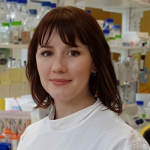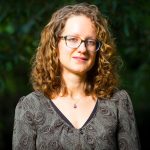Evidence indicates that exercise is safe and improves many clinical outcomes, including physical fitness, functional abilities, fatigue, depression and cognitive function in people with MS. However, many people with MS do not engage in the levels of exercise needed to produce the best health outcomes for their condition. Dr Yvonne Learmonth has already developed and tested an exercise framework, called the changing Behaviours towards Aerobic and Strength Exercise in MS programme (BASE), which uses evidence-based practice to deliver exercise remotely via telehealth.
In this project, Associate Professor Yvonne Learmonth will develop and test an online education tool to train MS exercise physiologists, occupational therapists and physiotherapists to deliver the BASE program to people with MS. She will measure training success based on the healthcare provider’s confidence, knowledge, and behaviour towards delivering the BASE programme to people with MS. To prepare for a large-scale roll-out of the BASE framework, Dr Learmonth will identify the cost of healthcare provider training and the outcomes, mechanisms and contexts which make the framework realistic for delivery within the Australian healthcare system.
Associate Professor Learmonth and her team have made significant progress, collaborating with physiotherapists and individuals with MS to gather feedback on the BASE healthcare provider (HCP) training program. They have integrated the feedback, finalised the training program and delivered the training program to 27 HCPs. Sixteen of these trained HCPs have provided the BASE program to 47 participants with MS.
Data collection from the project is 90% complete and analysis has begun. Data from the project has also been presented at both national and international conferences.
Associate Professor Learmonth has also continued collaborating across other projects related to exercise participation, technology in MS exercise delivery, social determinants of health in MS, and crisis resilience in MS. Publications related to this fellowship are shown below, and new national and international (USA, Ireland, UK, Canada, Germany) collaborations have been forged as a result of the project.
Updated 31 March 2025
$225,000
2022
3 years
Current project




